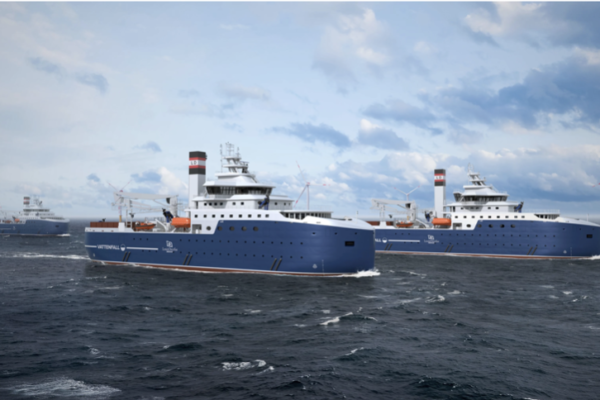Eight Norwegian research centers will receive a total of around 1.28 billion Norwegian kroner (110 million euros) in funding over eight years. The funded centers focus on diverse research areas including battery technology, solar energy, and carbon capture and storage.
Norwegian Research Centre of Excellence for Carbon Capture and Storage (GigaCCS)
The GigaCCS center addresses important and relevant research and innovation necessary to realize large-scale CO2 management. The center addresses R&D challenges throughout the entire CO2 management value chain, including innovations in both capture, transport, and storage of CO2. Combined with strong international collaboration and an extensive education program, this will provide valuable competence building that industrial players will need when CO2 management is to be implemented on an industrial scale.
Secure, resilient, and sustainable electricity distribution grids (SecureEL)
FME SecurEL aims to facilitate research and innovation that contributes to a secure, resilient, and sustainable electricity distribution grid, ensuring both power supply security and contributing to the transition to a zero-emission society. Research in SecurEL will focus on the new needs for knowledge, innovation, and solutions arising from the fundamental changes in the distribution grid driven by the electrification of society. The center will develop new solutions to increase network capacity in a cost-effective and socio-economically viable way while promoting value creation in industry, public administration, and society.
Integrated Hub for Energy System Analyses (InterPlay)
FME Interplay aims to enable increased integration of the energy system by establishing an open platform for sharing models and data and for linking and analyzing using energy and system models.
There are significant synergies associated with viewing the energy system as a whole, rather than sector by sector, both in terms of efficiency, supply security, and costs, but also emissions, nature, and sustainability. The research institutions have a wide range of relevant representatives from the private and public sectors as user partners, including large energy producers and owners and operators of national infrastructure.
Norwegian research centre for renewal of hydropower technology (RenewHydro)
FME RenewHydro aims to address challenges that hydropower faces when integrating large amounts of non-regulated power increases the demands for flexibility, and when operating efficiently and sustainably in an unpredictable climate. With stakeholders from public authorities, TSO, and a wide range of representatives from the hydropower industry, the research institutions are onboard. With the conclusion of FME Hydrocen in 2024, RenewHydro represents continuity and renewal for important parts of the hydropower sector.
Norwegian R&D centre for Maritime Energy Transitions (MarTrans)
The center aims to accelerate the transition of the maritime sector and reduce emissions from maritime traffic while increasing the value creation for Norwegian industry in the maritime and energy sectors. The center takes a holistic approach covering the entire value chain related to reducing energy consumption and using alternative fuels in maritime transport.
Zero Emission Metal Production (ZeMe)
The center aims to develop new climate-neutral and energy-efficient technology for the metallurgical industry. The center will develop technology towards industrial demonstration. In addition, the center will contribute to a more circular and resource-efficient value chain and facilitate energy-efficient CO2 capture from industry as part of the solution for reduced greenhouse gas emissions.
Solar
FME SOLAR aims to support the development of solar energy as a central part of the energy supply in Norway. In addition to the development, installation, integration, and operation of solar power plants both in and outside Norway, the center covers the entire value chain including silicon production, key applications such as building-integrated and floating solar installations, and recycling of solar panels.
Next-generation and improved circular sustainable battery technology value chain (Battery)
FME Battery is aimed at technological improvements in all the key areas for the Norwegian battery industry; battery materials, cell production, battery packs/systems, and recycling/reuse. NTNU is the host institution, but IFE leads the project. The center will work towards a circular value chain, with participation from all major and important battery research environments in Norway as well as leading industrial actors.
Read more in our article on forumNordic: Norway Invests in Research Centers for Sustainable Energy (article 1). The Research Council of Norway’s press release (in Norwegian).
Photo: Henning Sørby / Pixabay




